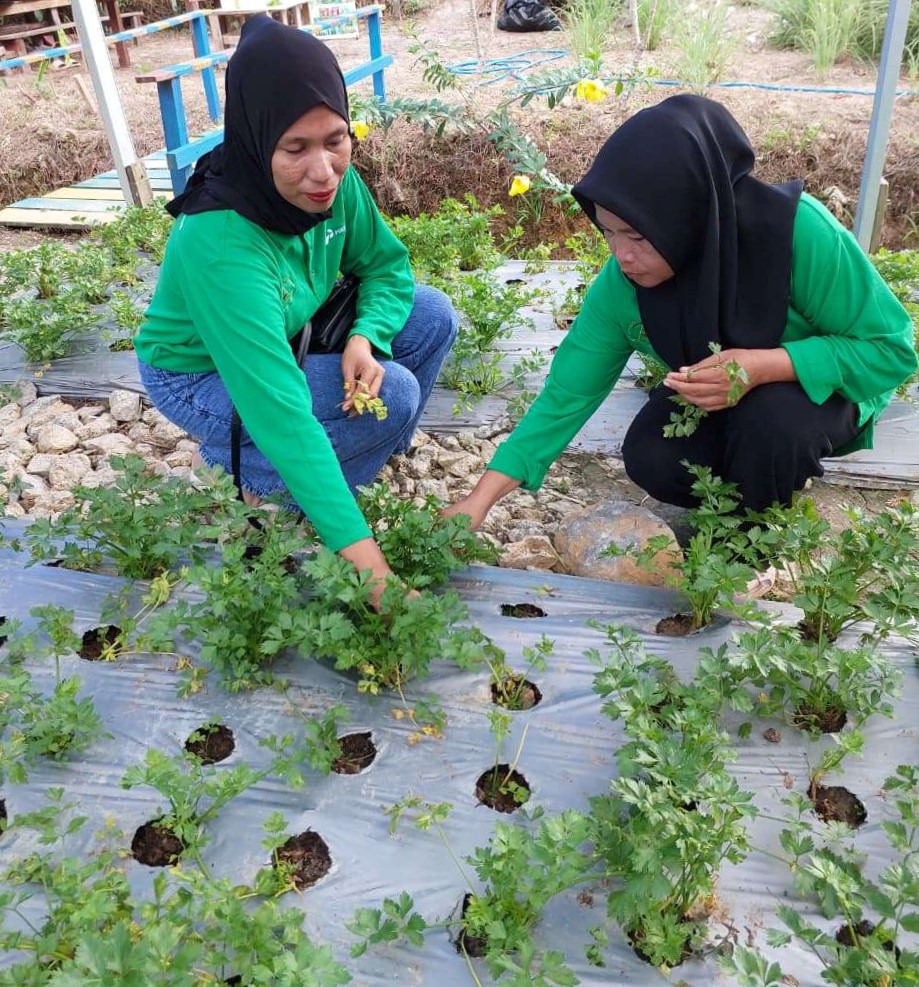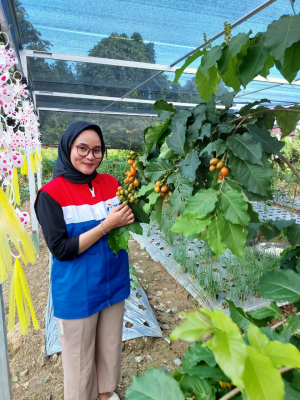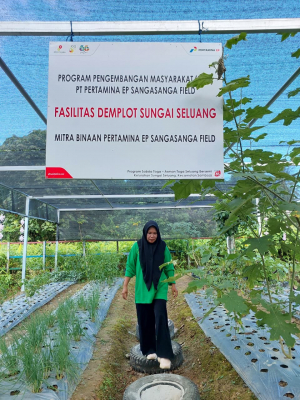21
Oct

Samboja, East Kalimantan – PT Pertamina EP (PEP) Sangasanga Field continued to develop its Corporate Social Responsibility (CSR) program in the health sector through the Integrated Community Health Program for Prosperity/Program Kesehatan Masyarakat Terpadu Menuju Sejahtera (PROKESMAS PUJA), located in Sungai Seluang Subdistrict, Samboja District, Kutai Kartanegara, East Kalimantan. This CSR health program was the Company’s response to the high cases of tuberculosis (TB) and stunting in Samboja, as well as the community’s limited understanding of clean and healthy living habits.
Through PROKESMAS PUJA, PEP Sangasanga Field supported community-based health services that integrated promotive, preventive, curative, and rehabilitative efforts within a single location. The program had produced tangible impacts on improving community welfare. A total of 92 health cadres had been trained, 10 Wastewater Treatment Installations/Instalasi Pengolahan Air Limbah (IPAL) Pesiar units had improved sanitation, and Micro, Small, and Medium Enterprises (MSMEs) based on Family Medicinal Plants/Tanaman Obat Keluarga (TOGA) and household waste management generated up to IDR 18 million in annual income. Additionally, residents saved approximately IDR 260,000 per month on fertilizer costs through the production of organic compost. Environmentally, 625 square meters of previously nonproductive land have been converted into a TOGA garden, featuring 600 plants across 30 species. Each month, approximately 5 kilograms of organic waste were processed into compost, and 70 kilograms of inorganic waste were recycled into handicraft products.
Dony Indrawan, Manager of Communication Relations & CID at PT Pertamina Hulu Indonesia, reaffirmed the Company’s commitment to implementing Corporate Social Responsibility (CSR) through Community Involvement & Development (CID) programs that support community empowerment and environmental conservation. “PROKESMAS PUJA represents the Company’s commitment to supporting the government’s policy in improving public health quality, particularly in the Company’s upstream oil and gas operational areas in East Kalimantan,” he explained.
According to Dony, improving the quality of maternal and child health is a vital element in creating a healthy society and a better future. Therefore, PEP Sangasanga Field engaged various stakeholders to ensure the program’s success and sustainability. “Through this program, we aim to provide sustainable solutions by empowering local potential, from health cadres and medical personnel to the community’s social support system, all of whom share a strong spirit of cooperation,” said Dony.
The PROKESMAS PUJA program consisted of five main subprograms:
Regarding implementation, Head of UPTD Samboja Community Health Center, Su’ud, noted that PEP Sangasanga Field’s approach proved more effective in fostering healthy behaviors in the community. “Previously, supplemental feeding was done at home and often left unfinished. With Rumah Bahagia, children eat together while engaging in activities, making them more enthusiastic about consuming nutritious food. This program also helps us conduct more focused and centralized health monitoring,” said Su’ud.
Cross-sector collaboration in implementing PROKESMAS PUJA also received appreciation from the local government. Acting Head of Sungai Seluang Subdistrict, Rahman Rusmana, stated that the synergy among the Company, health centers, and residents serves as a real example of community empowerment through health initiatives. “This program is excellent because everything is interconnected. Organic waste becomes compost, the compost nourishes plants, the plants support children’s nutrition, and all involve residents. This collaboration not only promotes health but also empowerment,” said Rahman.
Through PROKESMAS PUJA, PEP Sangasanga Field directly contributed to achieving the Sustainable Development Goals (SDGs), particularly Goals 2 (Zero Hunger), 3 (Good Health and Well-being), 5 (Gender Equality), and 8 (Decent Work and Economic Growth). “This program serves as proof of synergy among the company, government, and community in achieving sustainable social, economic, and environmental resilience, especially within the operational areas of PEP Sangasanga Field,” Dony concluded.
PT Pertamina EP (PEP) Sangasanga Field is part of Zona 9 Subholding Upstream Regional 3 Kalimantan, which is led by PT Pertamina Hulu Indonesia. Through cooperation with SKK Migas, PEP Sangasanga Field runs an innovative Social and Environmental Responsibility program in the fields of Economy, Education, Health, Environment, Infrastructure, and Disaster Response to support sustainable community empowerment and the achievement of Sustainable Development Goals (SDGs). PHI is headquartered in Jakarta. More information about PHI-Regional 3 Kalimantan is available at https://phi.pertamina.com.

